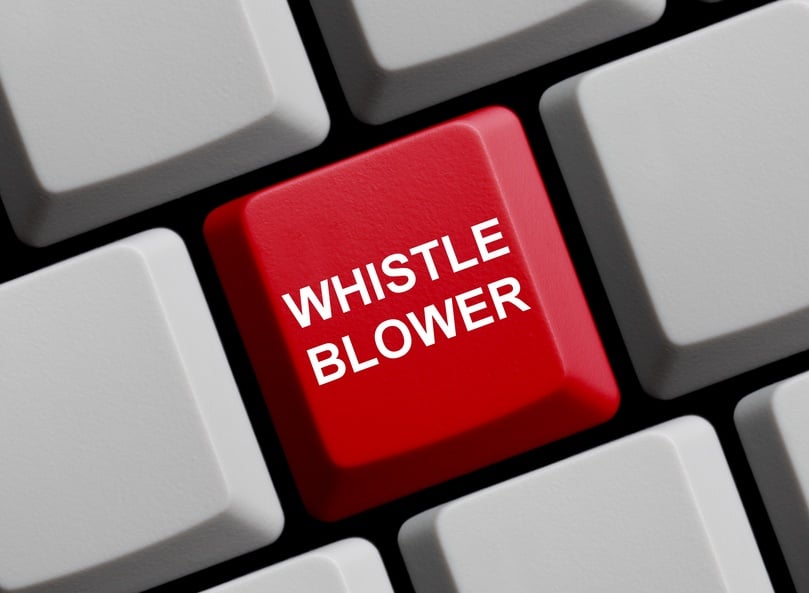On April 22, 2015, the SEC announced that it had awarded an unidentified company’s unidentified compliance officer with a whistleblower award of between $1.4M-$1.6M for providing the SEC with information that the agency used to bring an enforcement action. (SEC Press Rel. No. 2015-73, April 22, 2015). This is the second time the SEC has issued a whistleblower award to an employee with audit or compliance responsibilities (See SEC Press Rel. No. 2014-18, August 29, 2014 Release announcing a $300,000 award issued to an employee with compliance and audit responsibilities).
The Background
This issue has been and will remain an issue of intense focus by the SEC, corporations and the defense bar, as compliance officers are, by design, situated to receive and remediate some of the company’s most sensitive compliance issues — some of which constitute violations of the federal securities laws. By way of background, under the SEC’s Whistleblower rules (which were promulgated under the Dodd-Frank Act), the SEC may issue an award of between 10% and 30% of the total sanctions imposed to an eligible whistleblower who provides original information about a violation of the federal securities laws that leads to a successful SEC enforcement action in which the agency recovers monetary sanctions of more than $1 million. Under these rules, company officers and directors, auditors and compliance personnel and other persons in similar roles are generally deemed ineligible to receive whistleblower awards based on the information received in their official capacities. However, the SEC Whistleblower rules contain narrow, but important, exceptions to this general rule. Specifically, potential whistleblowers, including compliance personnel, may be eligible to receive an award based on original information they provide to the SEC as long as: 1. they have a reasonable basis to believe that:
- disclosure of the information is necessary to prevent the entity from engaging in conduct that is likely to cause substantial injury to the financial interests of the entity or investors; or
- the entity is engaging in conduct that will impede an investigation of the misconduct, for example, by destroying documents or improperly influencing witnesses
OR 2. 120 days has passed since they provided the information to senior responsible persons at the entity or to their supervisor or 120 days has passed since the whistleblower received the information at a time when these people were already aware of the information.
The SEC’s Rationale
The SEC press release announcing the award identified the first exception as a basis for the award, stating “[t]he award involves a compliance officer who had a reasonable basis to believe that disclosure to the SEC was necessary to prevent imminent misconduct from causing substantial financial harm to the company or investors” and that “[w]hen investors or the market could suffer substantial financial harm, our rules permit compliance officers to receive an award for reporting misconduct to the SEC.” The SEC’s release also noted “This compliance officer reported misconduct after responsible management at the entity became aware of potentially impending harm to investors and failed to take steps to prevent it.” It is not clear from either the press release or the order whether the employee reported the misconduct internally.
The Lesson
First, Dodd-Frank allows compliance department employees to be whistleblowers under certain circumstances, although attorneys are subject to additional rules. Second, the ability of those compliance department employees to report violations is not unlimited. Specifically, the Whistleblower rules provide that information learned by such representatives through a privileged communication will generally not be eligible for a whistleblower award, unless local bar rules would permit such disclosure. This would include appropriate communications during the course of an internal investigation. Companies looking to minimize the impact of whistleblowers are encouraged to take steps to ensure that communications, fact-finding and investigations relating to a potential compliance issue are done, in appropriate cases, at the direction of counsel, so that privilege and work product apply to the communication and therefore likely disqualify it as the basis for a whistleblower report. Third, the existence of potential whistleblowers, particularly under the exceptions noted above, influences a company’s decisions on whether and when to self report potential securities law violations, and should be understood in the context of recent reminders by the SEC and the Department of Justice of the benefits of self-disclosure. Fourth, particularly with respect to the exigent circumstances exception used here, the lack of detail set forth in the order may prevent corporations from effectively determining what particular circumstances will establish eligibility for an award.



